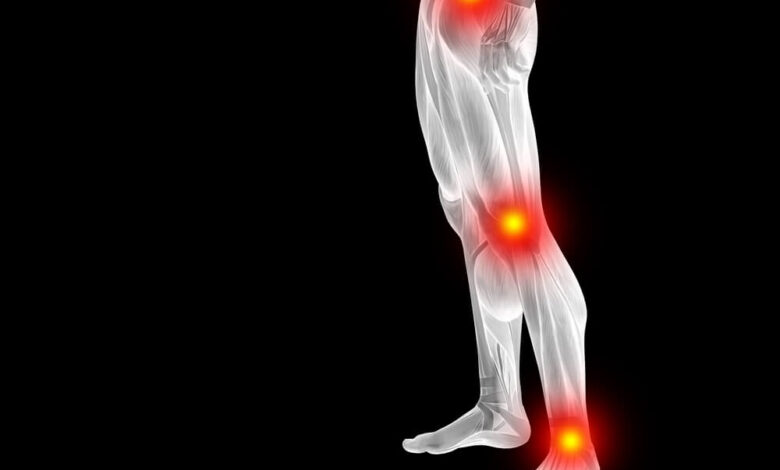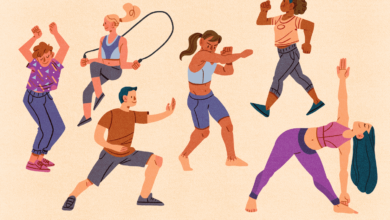How To Workout If You Have An Injury

Sometimes my right shoulder does not cooperate and leads to workout-injuries. Raising my arm overhead is something I try to avoid. Reaching back to hold on to the bar for the back squat is out of the question.
And the embarrassing truth is that I don’t even have some wild training injury story to tell or some intense shoulder workout. I’m pretty sure that poor ergonomics when working on my laptop combined with repeatedly yanking Coda off of the coffee table are the source of the injury. Regardless of the cause of the injury, one thing is for certain. . . my training must be altered to give my shoulder time to heal and work on shoulder mobility.
When injury strikes, and on a long enough timeline it almost certainly will follow these tips to keep you training while giving your body the time it needs to repair.
Workout Injuries Tips…
#1 Test All Movements
There will be movements that you are certain will cause discomfort before even trying them.
If I know I’m in pain when I reach for the top shelf in my kitchen, I’m pretty damned sure that a push press is out of the question. But outside of the obvious, do not make assumptions. Instead, test the movement with little or no resistance and make an assessment.
For example, I would have guessed that pulling exercises would be a problem but strict chin ups do not bother my shoulder at all.
On the flip side, box jumps – with the arm swing that precedes the jump – are a no-go and something that I would not have initially guessed would cause discomfort.
To be certain if a movement can be done with injury you must test. And if you experience even the slightest amount of discomfort during the test, you must abandon the movement while the injury heals.
#2 Be Extra Diligent With Your Nutrition And Sleep
It goes without saying that solid nutrition and rest strategies should always be a part of your overall health and fitness regimen.
But we all slack from time to time… the cheat day that turns into the cheat weekend, a few nights of lost sleep and alcohol consumption because a long-lost college roommate calls, the never-ending temptation of Ben & Jerry’s Mint Chocolate Cookie ice cream.

Your body will normally bounce back just fine from these occasional indulgences. But when healing from an injury, your body’s resources are better spent on injury repair than nursing a hangover.
Turn off the television an hour earlier and get to bed. Have a second helping of spinach and forgo the pasta. Grill some chicken breasts and skip the deep fried chicken wings. Again, nutrition and recovery are always important. But for the swiftest recovery from injury, get your food intake and sleep schedule dialed in extra tight.
#3 Seek A Medical Opinion
This is one of those “do as I say, not as I do” kind of things. No, I haven’t been to the doctor for my shoulder.
Let’s just say that my current state of self-employment doesn’t come with the best health care plan. And as long as I continue to notice improvement with my shoulder (decrease in pain, increase in range of motion), don’t expect to see me in the waiting room.
But this doesn’t mean that you shouldn’t see a doctor. In fact, if you are injured you SHOULD see a doctor.
I have been to the doc for injuries in the past and have found that those that use “Sports” in the title of their practice (Sports Medicine, Sports Therapy) do their damnedest to keep you active. So if you are injured, be sure to seek a medical opinion and weigh all of your treatment options.
#4 Find The Opportunity In The Obstacle
Reaching back to grab the bar for a back squat makes me grimace in pain, but holding the bar for a front squat feels just fine. And it just so happens that I have neglected the front squat in my training over the past year or two.
Similarly, I’ve favored the kipping pull up over the strict version for quite some time. Well the kip doesn’t agree with the current state of my shoulder but I’ve been using the strict chin up for several weeks now and the shoulder press injury.
It is possible that an injury will force you to focus on a weakness. See this as a blessing, and enjoy finding the opportunity in the obstacle.
Injuries are always frustrating when they happen. But I don’t know anyone with any significant amount of training time under their belt who hasn’t had to deal with them. When injured be smart with your exercise selection, dial in your nutrition and sleep, seek a medical opinion, and be aware of training opportunities that you would not have considered without the injury.
How do you deal with an injury when it comes to training?
Or do you have an injury right now that you are dealing with?
Let me know in the comments below.
Old Author
-Vic




